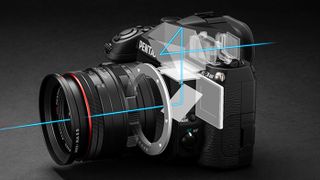There often seems to be a significant lag between the introduction of a new technology and its widespread adoption by the market. It’s happened in photography quite a few times, but is particularly noticeable right now with interchangeable lens cameras (ILCs).
Mirrorless cameras are the future, and the choice of new DSLRs is in rapid decline, but the number of photographers still using the latter is quite significant, both amateurs and pros. Why? Because aside from the various advantages of the mirrorless configuration, the best DSLRs still do the job that many photographers ask of them.
The DSLR is being labeled ‘old technology’, but the current models still share quite a lot of tech with mirrorless cameras. Their AF systems – especially those of the higher-end models – are extremely capable (we were calling them “state of the art” not so long ago) and, let’s be honest, not everybody needs to shoot at 20, 30 or even 40 fps. And, of course, there are still some real plusses with an optical viewfinder.
All this came to mind as I was road-testing the Pentax K3 III. For reasons I can’t remember now, Australian Camera magazine missed it when it was launched back in 2021, but the opportunity came up to take a look now. It was quite a revelation, having been locked into mirrorless cameras since the end of 2020 when the Nikon D6 was the last DSLR I had in to test.
The K3 III is the Pentax ‘APS-C’ flagship and, when it was launched, it had plenty to compete with the mirrorless offerings at the time. Two years later, it’s still pretty competitive even though the comparable mirrorless cameras have become even more capable with ever higher spec.
The sensor shifting that drives the in-body image stabilization is used for a variety of other useful features although, ironically, the ‘Pixel Shift Resolution’ function doesn’t boost the resolution, but instead enhances color and definition. Fair enough. Elsewhere, it’s all about expanding the capabilities through more settings choices than you’ll encounter anywhere else (except in the full-frame Pentax DSLRs).

Ricoh – custodian of the Pentax brand – has stated that it remains committed to DSLRs which, of course, is a bit different from the messaging coming from Canon and Nikon. It makes sense given the history of the brand in 35mm SLRs and, like Leica with the rangefinder camera, it looks like a lot of what Ricoh is planning to do will reference this… including a new 35mm film SLR probably sometime in 2024.
There have already been some limited editions – including, most recently, a Monochrome version of the K3 III – which, as Leica has also proved, is an effective way of maintaining interest… and selling a few more cameras at a premium price (and I don’t mean that rudely). In fact, overall, it looks like Ricoh might have been studying the Leica operating manual quite closely.
Another similarity is that Pentax users are fiercely loyal and, at times, it seems Ricoh has sorely tested their resolve – especially with the fairly casual approach to the brand’s 100th anniversary (although the Australian distributor did put on a big party) – but the future is now starting to look a bit more interesting.
However, as now seems very likely, Pentax is the last-brand-standing if you really, really want a new DSLR, is there enough going on to attract converts out of their aging Canons and Nikons? Well, we’ve certainly found that the K-3 III is a good prospect without needing to spend pro-level money and, if you want full frame, also the K-1 II.
Also, the current Pentax lens system has gone under the radar a bit, but there’s some good stuff in there and nothing beats the K mount for the sheer variety of legacy lenses. While the new 35mm SLR is going to be a very big story indeed and will bring the Pentax name … ahem… back into focus, there’s also scope to do something exciting with new DSLRs.
History has definitely played into Ricoh’s hands with Pentax, so now let’s see what it can do with the future.
Read more about the best Pentax cameras, and the best DSLRs in 2023


